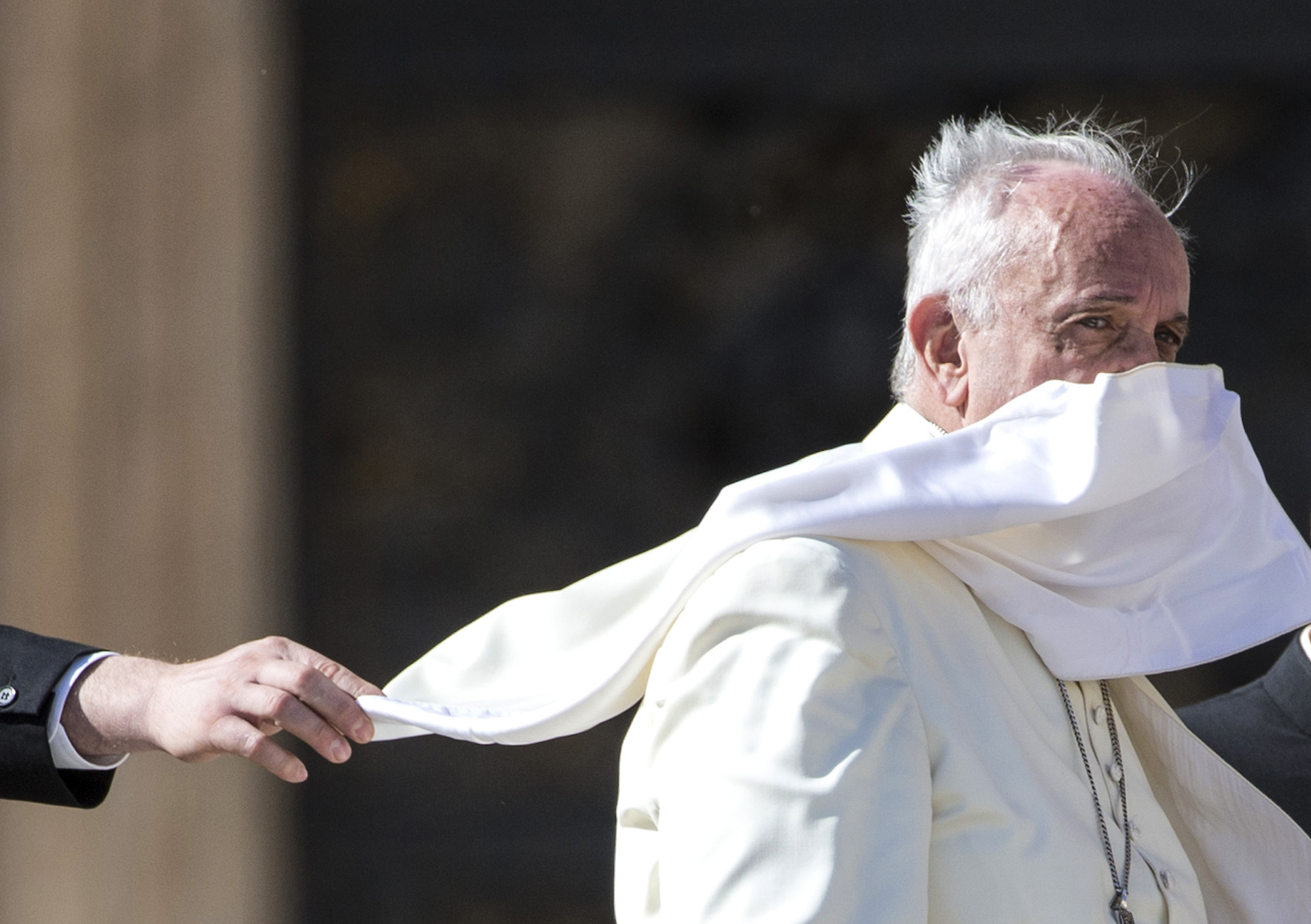Pope Francis' blind spot on capitalism
Capitalism is as close to a miracle as anything man will ever create. If only His Holiness could see it.


A free daily email with the biggest news stories of the day – and the best features from TheWeek.com
You are now subscribed
Your newsletter sign-up was successful
Pope Francis and China's President Xi Jinping will each be in Washington this week to meet with President Barack Obama. Too bad they're not meeting with each other, too. It would be an interesting chat, especially if they discussed the merits of modern capitalism.
Perhaps the "progressive pope" would offer some variation on his critique of markets and "trickle-down theories." (Remember, Francis has dismissed "unfettered," high-octane capitalism as the "dung of the devil," saying it "deadens us.") Perhaps he would lecture the Communist leader on rising income inequality in the world's most populous nation. Perhaps Xi would respond with an explanation of how capitalism with "Chinese characteristics" is different from the sort practiced by Wall Street.
But what President Xi would say to Pope Francis is less important, really, than who Xi is: the leader of the planet's most important economy. Well, next to America's, that is. So maybe as Xi or his translator were talking, the pope might consider how China got to its place of near economic supremacy. How China went from a national income of $1,500 per person in 1978 — about the same as impoverished North Korea — to $11,500 today, about the same as your typical Central American country. Bogota may not be San Francisco, but it sure isn't Pyongyang either. (The North Koreans, by the way, are no better off today than they were back then.)
The Week
Escape your echo chamber. Get the facts behind the news, plus analysis from multiple perspectives.

Sign up for The Week's Free Newsletters
From our morning news briefing to a weekly Good News Newsletter, get the best of The Week delivered directly to your inbox.
From our morning news briefing to a weekly Good News Newsletter, get the best of The Week delivered directly to your inbox.
China's economic boom has been extraordinary. Consider Pudong, which went from being a backwater bit of Shanghai in 1990 to a financial hub of more than 5 million people. Were these the results of more U.S. foreign aid or some new development scheme devised by World Bank technocrats?
No. It was Beijing's adoption of an operating system called capitalism.
Foreign trade, investment, privatization, free enterprise — this is how China grew. Indeed, like much of the West, China is becoming what economist Deirdre McCloskey has termed "a business-respecting civilization." It's still a pretty buggy system in China, with too much government ownership, oversight, and control. And the nation may get stuck without more market reforms. But capitalism with Chinese characteristics has been free and dynamic enough so far to have lifted 700 million Chinese people out of extreme poverty.
Pope Francis seems to have a problem with capitalism because of his experience with the distorted version he knows from Argentina. Maybe we can find a different word or phrase that doesn't suggest that flawed model. In a recent essay, McCloskey suggests a few alternatives, including "technological and institutional betterment at a frenetic pace, tested by unforced exchange among all the parties involved" and "fantastically successful liberalism, in the old European sense, applied to trade and politics, as it was applied also to science and music and painting and literature."
A free daily email with the biggest news stories of the day – and the best features from TheWeek.com
Or maybe just "economic freedom" will do.
Capitalism isn't perfect, of course. And free marketeers should talk about those imperfections. Capitalism has created a globalized, technologically advanced world generating great wealth and great anxiety. (Will the robots take all the jobs other than CEO??!?) And every market outcome isn't an acceptable one. For instance, if the market wage for low-skill jobs won't keep families out of poverty, then society, through government, should act.
Still, it would be great if Pope Francis showed a deep understanding and respect for how even imperfect capitalism has generated opportunity for mass human flourishing almost unimaginable a century ago. That may not meet the Christian definition of a miracle, but it surely is a marvel, one worth evangelizing.
James Pethokoukis is the DeWitt Wallace Fellow at the American Enterprise Institute where he runs the AEIdeas blog. He has also written for The New York Times, National Review, Commentary, The Weekly Standard, and other places.
-
 Tourangelle-style pork with prunes recipe
Tourangelle-style pork with prunes recipeThe Week Recommends This traditional, rustic dish is a French classic
-
 The Epstein files: glimpses of a deeply disturbing world
The Epstein files: glimpses of a deeply disturbing worldIn the Spotlight Trove of released documents paint a picture of depravity and privilege in which men hold the cards, and women are powerless or peripheral
-
 Jeff Bezos: cutting the legs off The Washington Post
Jeff Bezos: cutting the legs off The Washington PostIn the Spotlight A stalwart of American journalism is a shadow of itself after swingeing cuts by its billionaire owner
